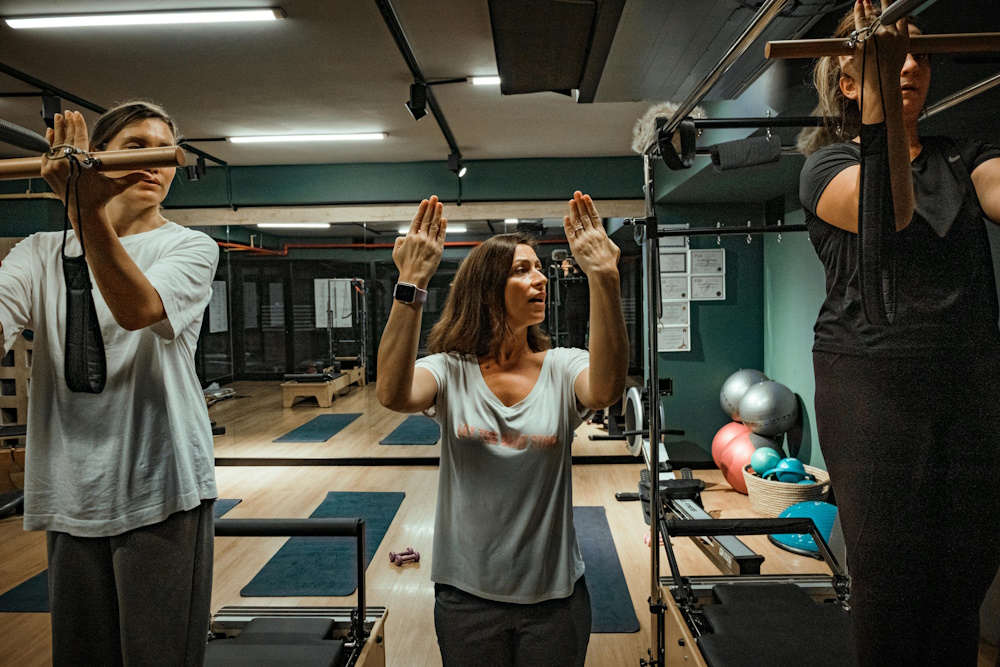Participating in a Pilates challenge can be an incredibly rewarding journey towards improved physical fitness, flexibility, and overall well-being. One often-overlooked yet vital aspect of achieving success in these challenges is accountability. Accountability acts as a powerful motivator, helping individuals stay on track, overcome obstacles, and reach their Pilates goals. In this comprehensive exploration, we’ll delve into why accountability is crucial in exercise, what fitness accountability entails, strategies to create accountability for your Pilates workouts, and how accountability intertwines with your fitness goals.
Why Is Accountability Important in Exercise?
Accountability is a fundamental pillar of success in exercise and fitness for several reasons:
1. Consistency: Consistency is key to achieving and maintaining fitness goals. Accountability helps individuals stay consistent with their exercise routines, ensuring they show up for workouts regularly.
2. Motivation: Having someone or something to be accountable to serves as a potent motivator. It can push you to push through challenging moments, even when your motivation wanes.
3. Overcoming Procrastination: It’s natural to procrastinate or make excuses to skip workouts. Accountability provides the necessary push to overcome these mental barriers.
4. Tracking Progress: Being accountable means you’re actively tracking your progress. This enables you to see how far you’ve come, which can boost motivation and confidence.
5. Avoiding Plateaus: Sticking to the same routine without accountability can lead to plateaus in your fitness journey. Accountability encourages you to adapt and evolve your workouts.
6. Mindfulness: Being accountable requires mindfulness and self-awareness. It encourages you to be present during your workouts, enhancing the mind-body connection.
What Is Fitness Accountability?
Fitness accountability refers to the practice of committing to exercise routines, health goals, and overall well-being, often with the support of external factors or individuals. It involves being answerable to someone or something for your fitness-related actions, progress, and outcomes.
Fitness accountability can take various forms, including:
1. Personal Accountability: Holding yourself responsible for your fitness journey, tracking your workouts, and monitoring your progress.
2. Accountability Partners: Partnering with a friend, family member, or workout buddy who shares your fitness goals. You both motivate and support each other.
3. Professional Guidance: Seeking the expertise of a fitness trainer, coach, or instructor who designs personalized workout plans and monitors your progress.
4. Group Classes: Joining group fitness classes where participants share a common goal and are collectively accountable for attending and participating.
5. Technology: Using fitness apps, wearables, or online platforms to track your workouts, set goals, and receive reminders and encouragement.
How Do You Create Accountability for a Workout?
Creating accountability for your Pilates workouts involves setting up systems and strategies that help you stay committed and motivated. Here’s how to do it effectively:
1. Set Clear Goals: Define specific, measurable, and achievable fitness goals. Knowing what you’re working towards provides a sense of purpose and motivation.
2. Create a Schedule: Establish a workout schedule that fits into your routine. Consistency is easier to maintain when workouts become a habit.
3. Find an Accountability Partner: Team up with a friend or family member who shares your fitness goals. You can work out together, check in on each other’s progress, and provide motivation and support.
4. Hire a Trainer or Instructor: Consider working with a certified Pilates instructor or personal trainer. They can create tailored workout plans, monitor your progress, and provide expert guidance.
5. Join a Group Class: Participate in Pilates group classes where the collective energy and camaraderie of the group can be motivating and hold you accountable.
6. Use Technology: Leverage fitness apps, wearable devices, or online fitness communities to track your workouts, set reminders, and connect with like-minded individuals.
7. Track Your Progress: Keep a workout journal or use fitness apps to log your sessions, record your achievements, and track your progress over time.
8. Reward Yourself: Set up a reward system for reaching milestones or sticking to your workout schedule. Rewards can be a powerful incentive.
What Is Accountability in Fitness Goals?
Accountability in fitness goals means committing to specific objectives related to your health and well-being and taking steps to ensure you achieve them. These goals can encompass various aspects of fitness, including strength, flexibility, endurance, and overall physical health. Accountability is crucial in achieving these goals because it keeps you focused and responsible for your progress.
Examples of fitness goals that require accountability include:
1. Weight Loss: Setting a target weight and creating a plan to achieve it through a combination of diet and exercise.
2. Strength Gain: Striving to increase your muscle strength and endurance through regular Pilates sessions and other strength-training activities.
3. Flexibility Improvement: Working on enhancing your flexibility by regularly practicing Pilates and incorporating stretching routines.
4. Endurance Enhancement: Building cardiovascular endurance through aerobic exercises and Pilates sessions.
5. Overall Well-Being: Pursuing a holistic approach to health and wellness, including balanced nutrition, stress management, and mental well-being.
6. Performance Goals: Setting specific performance-based goals, such as mastering challenging Pilates exercises or completing a certain number of sessions per week.
7. Consistency: Holding yourself accountable for sticking to your workout schedule and maintaining a healthy lifestyle.
In summary, accountability plays a pivotal role in Pilates challenges and fitness journeys as a whole. It promotes consistency, motivation, and progress tracking. To create accountability for your workouts, set clear goals, establish a schedule, consider accountability partners or professional guidance, and leverage technology. Your fitness goals are achievable with the right level of accountability, dedication, and commitment to your well-being.
